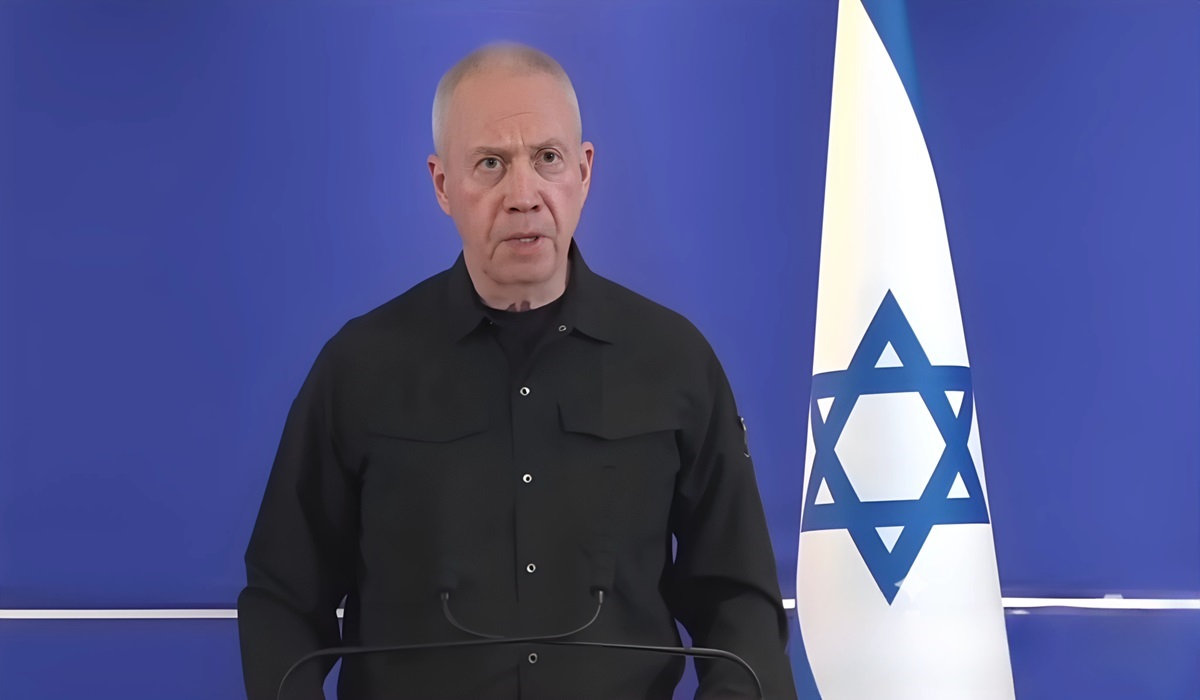Netanyahu Oust Gallant as Israel’s Defense Minister, Sparking Outcry and Protests
- Ingrid Jones
- Trending
- Middle East
- November 6, 2024

Prime Minister Benjamin Netanyahu’s firing of Defense Minister Yoav Gallant on Tuesday has stirred significant political and public upheaval across Israel. This latest move is rooted in a deepening rift between Netanyahu and Gallant over the direction of Israel’s defense strategy, particularly in response to ongoing conflicts and a controversial incident involving the Hannibal Doctrine. The doctrine, which sanctions extreme measures to prevent Israeli soldiers from being captured—even if it risks harming hostages—has recently come under renewed scrutiny. Reports have surfaced alleging that security tapes related to the doctrine’s application were erased or withheld from investigations, sparking public outcry and raising serious questions about transparency in Israel’s defense practices.
“Unfortunately, although in the first months of the war there was trust and there was very fruitful work, during the last months this trust cracked between me and the defense minister,” said Netanyahu
Gallant’s recent call for an inquiry into how Hamas breached Israel’s defenses on October 7, coupled with his stance on hostage return strategies, ultimately clashed with Netanyahu’s hardline approach. However, it’s worth noting that Gallant has long been a central figure in Israel’s military establishment and was actively involved in orchestrating intense military responses, including devastating airstrikes in Gaza and across the region. While Gallant expressed concerns about certain aspects of military policy, he was by no means a proponent of restraint in Israeli operations. His main divergence with Netanyahu stemmed more from tactical disagreements than from any fundamental difference in their willingness to take aggressive action. Both men pursued uncompromising approaches to security, albeit with different priorities and strategies.
Gallant’s call for a more thorough investigation into the events of October 7 was focused on identifying vulnerabilities in Israel’s security apparatus, but he was not advocating for a broader shift in Israel’s military stance. His desire for a hostage-focused strategy reflected his military actions of the situation rather than an inherent caution, marking a departure from Netanyahu’s position that rapid and overwhelming military responses should be prioritized above all else.
Netanyahu’s decision to dismiss Gallant on the day of the U.S. elections raised eyebrows, with many speculating that the timing was intended to minimize the fallout by coinciding with the American political cycle. Gallant’s tenure had previously been protected by diplomatic interventions from the U.S. State Department, which valued him as a steadying figure in the defense ministry, but that shield appears to have waned. As Netanyahu moved forward with the dismissal, it underscored the depth of his disagreement with Gallant and a clear willingness to shape Israel’s defense leadership according to his own strategic outlook.
Public reaction has been swift and severe, with thousands taking to the streets of Tel Aviv in protest against Gallant’s removal. Many citizens see Netanyahu’s decision as destabilizing, particularly given the broader context of Israel’s heightened tensions with Iran following a recent Israeli strike on Iranian territory. Iran’s anticipated response has raised fears of retaliation, amplifying concerns about Israel’s security amid this leadership shakeup. Gallant’s departure comes at a precarious time, with Israeli citizens uncertain about whether his replacement, Israel Katz, will bring a steady hand or adhere strictly to Netanyahu’s hardline vision without the critical scrutiny many feel is necessary.
Katz, another Likud stalwart and experienced member of Israel’s Security Cabinet, is expected to align closely with Netanyahu’s strategic preferences. His appointment signals that the administration’s uncompromising approach to military matters will likely continue. However, some analysts caution that this transition may stifle the internal debates needed to navigate the complex security landscape Israel faces, particularly in the wake of intensified regional threats.
In this charged atmosphere, Netanyahu’s choice to dismiss Gallant has sparked far-reaching debate on the direction of Israel’s defense policy and the consequences of prioritizing political loyalty over a balanced approach to national security. With public discontent simmering and external threats looming, Israel is left facing an uncertain future. The reshaping of its defense leadership raises critical questions about the path Netanyahu is carving for the country, leaving citizens and observers alike to ponder whether Israel’s security infrastructure will withstand the pressure—or be further strained by this latest upheaval.








